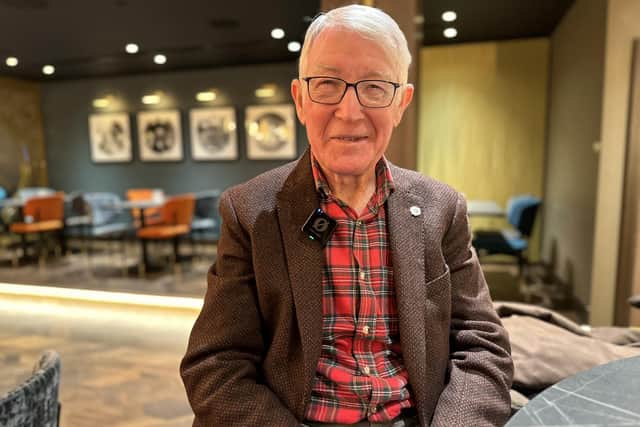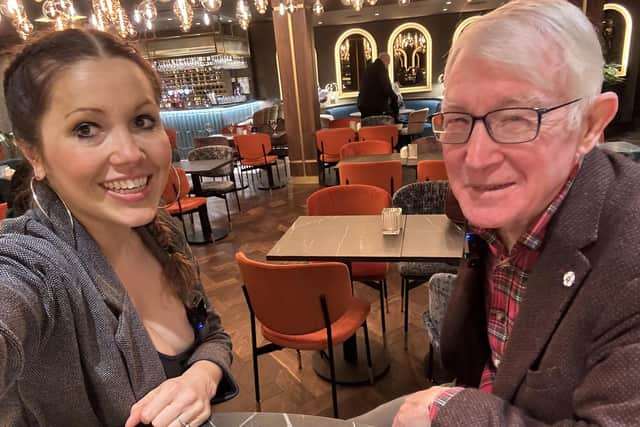We went to try out a Talk Tyke course to learn to speak ‘proper Yorkshire’
Nestled in a small pocket of West Yorkshire is the small market town of Cleckheaton. It was here inside the stunning library where I am discovering the art of how to actually speak Yorkshire as part of a Talk Tyke course.
I had wrongly assumed I already knew how to speak proper Yorkshire and this course would just inform me about the history of Yorkshire. As a proud born and bred Sheffield lass, one of my first encounters with my now husband was us having a “Yorkshire off,”as to who spoke the “most Yorkshire,” i.e. with the strongest accent.
Advertisement
Hide AdAdvertisement
Hide AdI hadn't realised the difference between dialect and accents until I began the Talk Tyke course run by the Yorkshire Dialect Society.


Course leader Rodney Dimbleby said: “Dialect is what we say, accents are how we say it.”
While this is a course primarily on the Yorkshire dialect, it is worth noting that the humble Yorkshire accent often comes out top of surveys for being the friendliest, trustworthy and most sought after for customer services professionals.
What is dying though is our dialect hence the importance of the Yorkshire Dialect Society which is the world’s longest standing dialect society.
Advertisement
Hide AdAdvertisement
Hide AdThe Yorkshire dialect is particularly important because it’s closer to proper English than modern English is itself.


“Yorkshire is closer to old English or “Old Norse” than modern English,” explains Rodney, the chairman of the Yorkshire dialect society who is teaching Yorkshire folk to learn their own dialect.
Former German teacher Rodney is teaching the dialect the way he would any language.
He said: “I retired early from teaching German. Interestingly, when I discovered through a friend the Yorkshire Dialect Society I realised how close our dialect is to German. it has Germanic roots.”
Advertisement
Hide AdAdvertisement
Hide AdWords such as “to find” is “finden” in German and “to lie” is “ligen.”
Rodney said: “We don’t beat around the bush in Yorkshire. We say it how it is.”
Rodney hails from Bradford - or as he explains is correctly pronounced as “Bratford” - discovered the importance of Yorkshire dialect and preserving its history while volunteering for Age Concern and doing a session with elderly people on storytelling.
“My friend introduced me to the Yorkshire Dialect Society and I started to attend meetings.I discovered a whole world of Yorkshire dialect.”
Advertisement
Hide AdAdvertisement
Hide AdRodney started to help the society and became chairman almost seven years ago.
He has since attended over 400 community groups sharing his passion for dialect through songs, poems and stories.
“It’s so expressive, there’s lots of humour,” he added.
Comment Guidelines
National World encourages reader discussion on our stories. User feedback, insights and back-and-forth exchanges add a rich layer of context to reporting. Please review our Community Guidelines before commenting.
